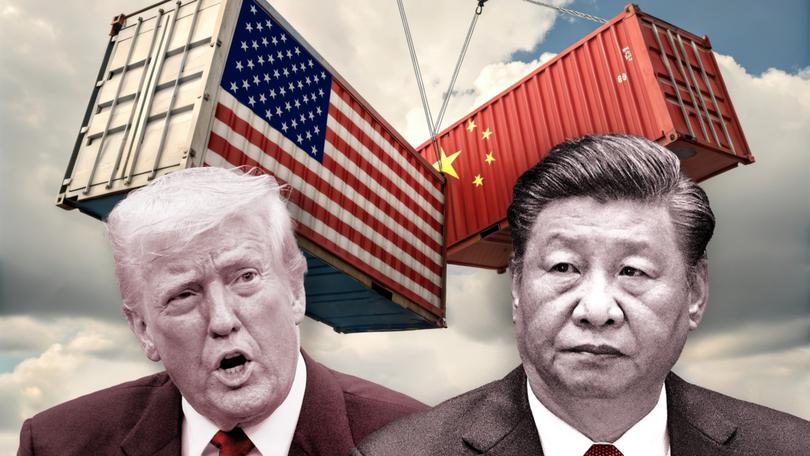
US federal reserve chair Jerome Powell issues stark warning, saying president Donald trump’s tariffs could lead to higher inflation and slowdown the economic growth.
Speaking at economic club of Chicago, Powell said the central bank remains in wait and see mode for now, but acknowledged the tariffs are already complicating the fed’s policy outlook. “Tariffs are highly likely to generate at least a temporary rise in inflation,” Powell said, adding that the inflationary effects ” could also be more persistent.
Trump’s erratic trade policy has left global markets on edge and businesses without clear direction. the resulting uncertainty has driven volatility to levels not seen since the pandemic. Powell noted, ” you’ll probably see continued volatility. Markets are functioning kind of as you would expect them to in this time of high uncertainty.
Most economists agree tariffs act as a tax on consumers and a brake on growth. Powell echoed those concerns, saying tariffs were likely to move us away from our goals. with the inflation expectations creeping up and growth projections falling, the fed may soon face tough decisions.
What exactly are Tariff ?
tariffs are taxes imposed on imported goods by a government. they work by increasing the cost of imported products, making them more expensive for consumers and potentially discouraging their purchase. these taxes are collected at customs clearance and can be a source of revenue for the government or a way to regulate trade and protect domestic industries.
Why is Trump using the Tariff ?
Trump says tariffs will encourage U.S. consumers to buy more American made goods, increase the amount of tax raised and lead to huge levels of investments in the country.
He wants to reduce the gap between the value of goods the U.S. buys from other countries and those it sell to them. He argues that America has been taken advantage of by cheaters and pillaged by foreigners.
China vs Trump Tariff: Slapped sweeping new tariffs on Chinese imports
In dramatic escalation of trade tensions, President Donald Trump’s administration slapped sweeping new tariff on Chinese imports, with rates as high as 245% on some items. The move is part of Trump’s renewed America first trade policy and comes amid growing geopolitical and economic rivalry between U.S. and China.
According to the White House fact sheet released, these tariffs are a direct response to China’s recent export controls on critical raw materials and its retaliatory tariffs targeting us exports.
The administration accused Beijing of weaponizing its control over supply chain by restricting the export of key minerals such as gallium, germanium, and antimony and more recently rare earth magnets and six heavy rare earth elements essentials to aerospace, defense and semiconductor manufacturing.
“China now faces up to a 245% tariff on imports to the United States as a result of its retaliatory actions,” the White House said.
In response to the escalating tariff war between the U.S. and China, White House press secretary Karoline Leavitt said U.S. President Donald Trump is open to making a trade deal with China but Beijing should make the first move.
How China vs Trump Tariff war affects Indian economy?
India has been pushing hard in recent years to become a manufacturing alternative to China, and it looked as if it had suddenly gained an advantage.
Then India and its smaller rivals got 90-day reprieves, and President Trump doubled down on China, boosting its tariff to 245 percent.
The sky-high tax on Chinese imports to America presented “a significant opportunity for India’s trade and industry,” said Praveen Khandelwal, a member of Parliament from the ruling party of Prime Minister Narendra Modi and a top figure in the country’s business lobby.
The China-U.S. tariffs war has created notable opportunities for the Indian economy by increasing its competitiveness in the global market. as the us imposes higher tariffs on Chinese goods, Indian manufactures can step in to fill supply gaps, particularly in sectors like textiles, chemicals, and electronics. this shift could lead to an uptick in Indian exports to the us and other markets seeking alternatives to Chinese products, thereby fostering growth in various domestic industries.
Additionally, the trade war may encourage foreign companies to relocate their supply chains from China to India to avoid tariffs. this trend could result in increased foreign direct investments in India, especially in manufacturing and technology sectors. higher FDI can create jobs and boost economic growth, as foreign firms establish operations that leverage India’s skilled workforce and favorable investment policies. Moreover, the desire for stability and diversification among global businesses could strengthen India’s position as an attractive investment destination.
However, the tariff war also presents challenges for the Indian economy. Increased volatility in global markets can affect commodity prices, which may lead to inflationary pressures domestically. Rising import costs for raw materials can squeeze margins for Indian businesses, potentially leading to higher prices for consumers. Indian policymakers must navigate these complexities to ensure that the benefits of the trade war translate into sustainable economic growth while mitigating adverse effects on inflation and consumer purchasing power. Ultimately, India has the potential to emerge as a significant player in the global supply chain, provided it capitalizes on these emerging opportunities effectively.
